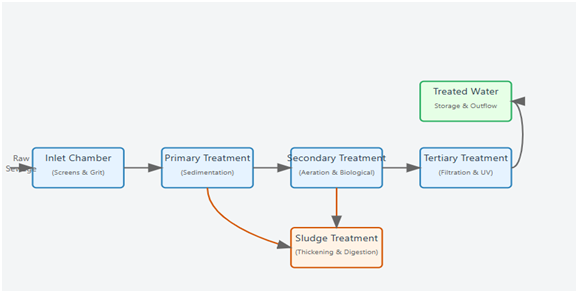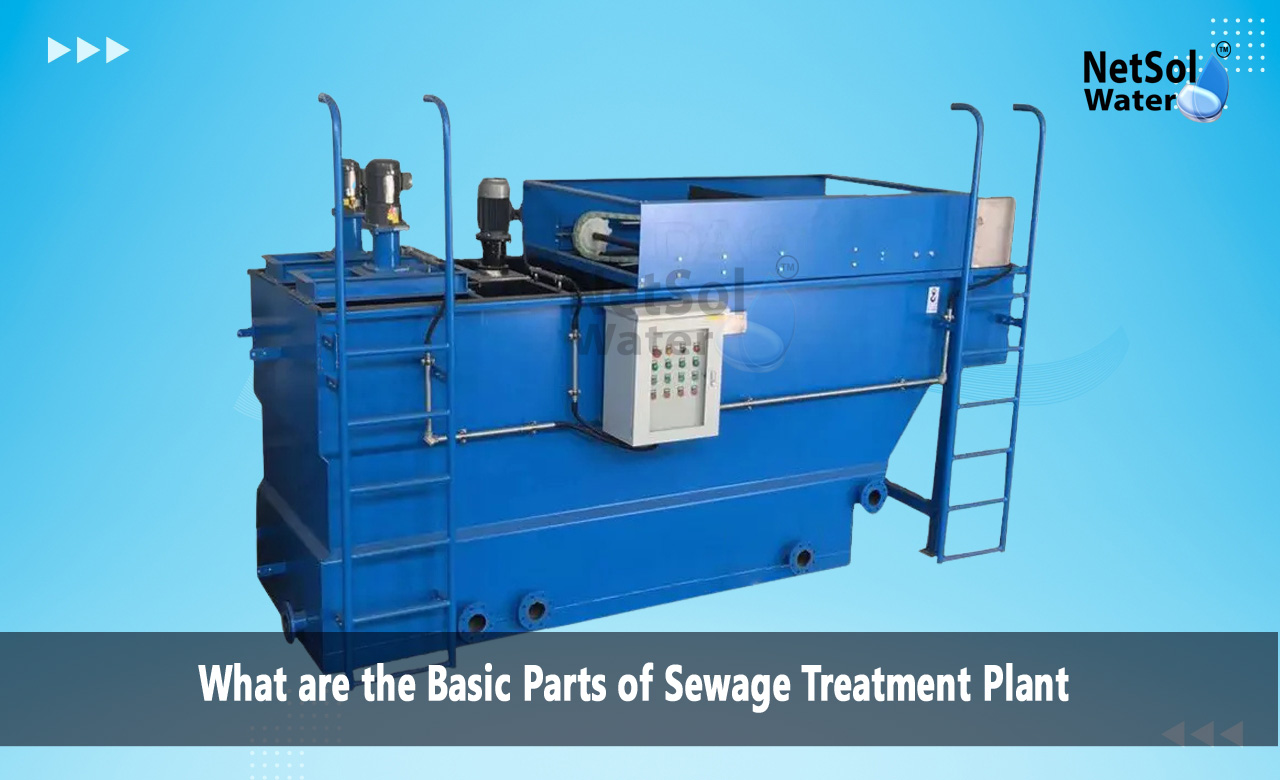What are the basic parts of an STP Plant?
An STP is the most critical infrastructural part of waste management where wastewater is managed and treated for safe disposal into the environment or reuse. Although the process may seem rather complex, understanding some of the fundamental components of an Sewage Treatment Plants helps you appreciate its importance in modern waste management systems.
Here's a closer look at the basic parts of an STP plant and how they work together.
Inlet Chamber
The process of wastewater starts at the inlet chamber. At this point, raw sewage enters the plant. This chamber has screens and grit chambers to remove large debris such as plastics, sand, or gravel from entering plant systems that might damage the equipment downstream.
Primary Treatment Units
The primary treatment aims for the settling out heavier solids and removal of oils and grease. This is by the following:
· Sedimentation Tanks: The heavier substances settle at the bottom in the form of sludge, whereas lighter materials like grease float at the top.
· Skimmers: Remove floating grease and scum.
Secondary Treatment Units
At this stage, the biological process intervenes to degrade organic material:
· Aeration Tanks: A mixture of water with air is applied to stimulate aerobic bacteria to decompose organic impurities.
· Biological Filters: Further treat the water by passing it through media where microorganisms degrade remaining impurities.
· Secondary Clarifiers: Separate treated water from microbial biomass, which settles as sludge.
Tertiary Treatment Units
For areas requiring high-quality treated water, tertiary treatment provides additional purification.
· Filtration Systems: In this step unwanted or residual impurities along with fine particle are separated out.
· Disinfection Units: Use the chlorine or UV light killing technique to eradicate dangerous microbes.
· Advanced Treatment Methods: If any special requirement is to be met the system may incorporate reverse osmosis or activated carbon filtration.
Sludge Handling Units
Wastewater treatment produces sludge, which has to be managed properly:
· Thickening Units: Remove excess water from sludge to concentrate it.
· Digesters: Strengthen the process of depolarization of organic compounds in sludge and decrease its volume, obtain biogas.
· Dewatering Systems: Apply filters or centrifuges to remove water from sludge meaning that disposal and reuse will be much easier.
Treated water storage and outflow
This water treated is stored in tanks and once it has passed through all the stages of treatment the water can be released or re-used. This serves to check conformity to environmental standards and also testing to ascertain the quality of the water.

Why are these parts necessarily important?
Every part in a Sewage Treatment Plant serves a crucial role in ensuring proper water purification and treatment. Each component, from preliminary screening to secondary clarification, must operate as best it might be with strict policies followed. The screening process removes large debris, while primary treatment settles solid waste. Biological treatment breaks down organic matter, and final disinfection eliminates harmful pathogens. Without these comprehensive treatment systems working in harmony, contaminated water could flow back into the environment untreated, posing significant health risks to communities. The discharge of untreated sewage can spread waterborne diseases, contaminate drinking water sources, and damage aquatic ecosystems, making proper treatment facilities essential for public health protection.
Conclusion
A Sewage Treatment Plant is a system that consists of many parts that are interrelated performing a common function of treating sewage. In this way, understanding these parts makes one realize that the technology and effort put in place and needed to protect water resources and the surrounding sustainability are significant.
Do you need an advice or assistance on selecting the best water and waste water treatment unit? We have solutions for all your problems!
Let us know your problem, our experts will make sure that it goes away.
For an assistance or related query,
Call on +91-965-060-8473 Or write us at enquiry@netsolwater.com



